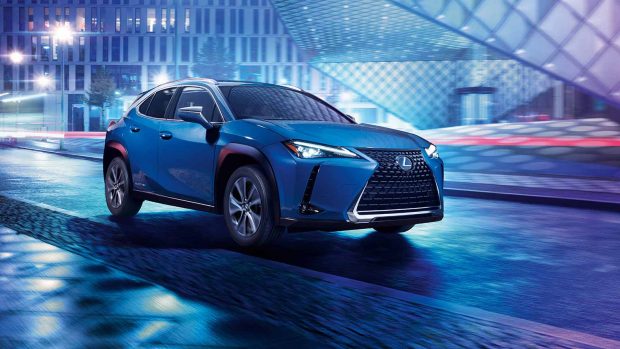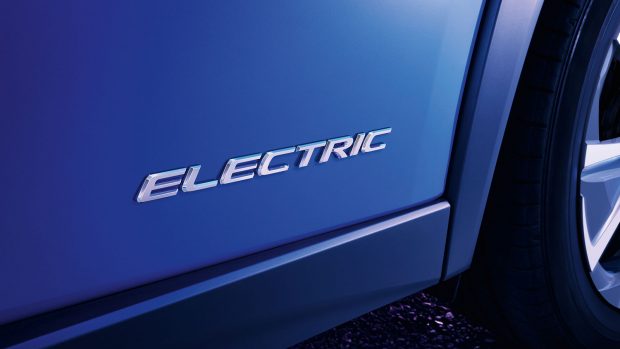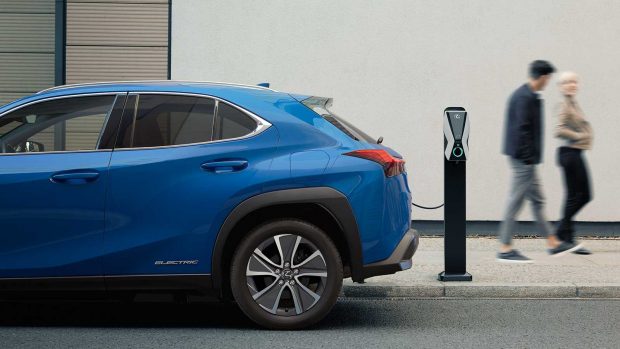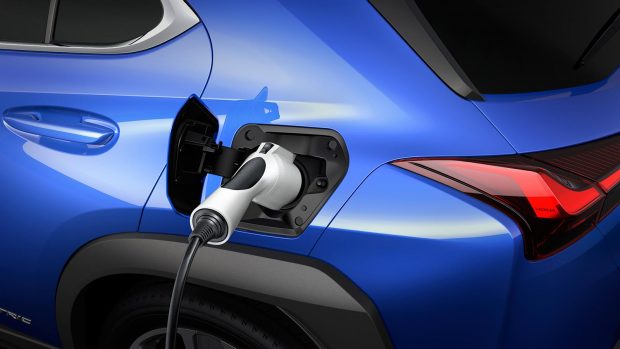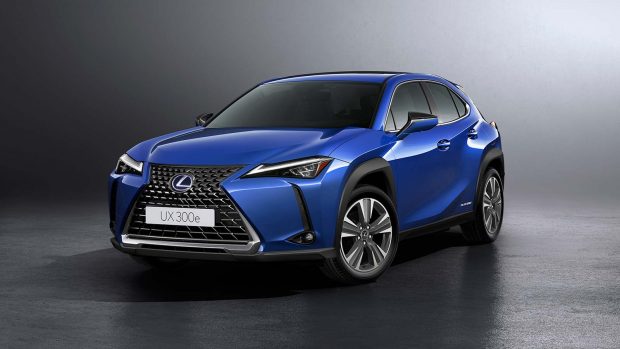-
Car Reviews
- All reviews
- Midsize SUVs
- Small cars
- Utes
- Small SUVs
- Large SUVs
- Large cars
- Sports SUVs
- Sports cars
- Vans
Latest reviews
- Car News
-
Car Comparisons
Latest comparisons
- Chasing Deals
Lexus anticipates plenty of interest for the brand’s first EV – the UX 300e – following strong sales posted by the UX 250h in 2020.
Following their success in series-parallel hybrids, Lexus is breaking new ground with the all-electric UX 300e which will compete with the hotly anticipated Mercedes-Benz EQA when it arrives later this year.
The battery-powered 2021 Lexus UX 300e will also become the new flagship of the small SUV line-up.
From a 54.3kWh battery pack, the UX 300e should be capable of covering around 310km from a charge. That lithium-ion battery pack is hooked up to an electric motor with 150kW of power and 300Nm of torque available, which should be plenty of poke for an urban-friendly SUV.
Lexus Australia public relations manager Dan DeGasperi said of the new UX 300e: “it won’t just be the first Lexus EV, it will be a performance flagship for the UX range as well… The UX 300e will deliver performance to sit atop the UX range”.
The 300e will also bring with it more affordable running costs – though the hybrid 250h already sips just 4.5L/100km.
As far as electric vehicles go the UX 300e is pretty humble. Only some minimal electric badging and aerodynamic alloy wheels give the EV’s eco credentials away from outside.
Chasing Cars wondered if the new pure EV would begin to cannibalise sales of the existing series-parallel hybrid option, but Mr DeGasperi anticipates “those who want a fully electric vehicle to be a different buyer”.
Pricing is yet to be confirmed, but the UX 300e to command a premium over the current $64,000 UX 250h F Sport.
Aside from performance, range is a big concern for Australian EV buyers, and the electric Lexus’ claims fall short of dedicated EVs like the Tesla Model 3.
Vehicles like the Hyundai Kona Electric offer a more realistic comparison. Like the UX, Hyundai’s small SUV is sold in petrol, hybrid and EV variants, though it claims 450km of range in the WLTP cycle from its 64kWh battery pack.
The UX 300e does boast 50kW DC fast-charging capability, allowing owners to juice their UX up from 0-80 per cent in 50 minutes.
Unlike most competitors, the UX 300e does not use liquid cooling, instead the batteries are air-cooled. This is down to packaging constraints as the TNGA-C platform underpinning the UX is not EV specific.
The UX 300e will be the first purely electric vehicle from Lexus, but not the last. It also does not spell the end of series-parallel hybrids from Lexus.
Lexus Australia CEO Scott Thompson confirmed that into the future the marque “will continue to broaden our response by developing more self-charging hybrid vehicles as well as plug-in hybrid, battery-electric and fuel-cell electric vehicle technologies”.
By 2025, Mr Thompson stated that Lexus is planning “electrified versions of all Lexus models” with the first “Lexus plug-in hybrid and a new dedicated BEV platform” on their way, too.
Backing their first-ever pure EV, Lexus gives the peace of mind of a ten year/million-kilometre warranty for the lithium-ion battery pack.
Lexus is developing EV-specific Encore program features for the launch of the UX 300e to ease owners into the prospect of EV ownership.
Latest news
About Chasing cars
Chasing Cars reviews are 100% independent.
Because we are powered by Budget Direct Insurance, we don’t receive advertising or sales revenue from car manufacturers.
We’re truly independent – giving you Australia’s best car reviews.
